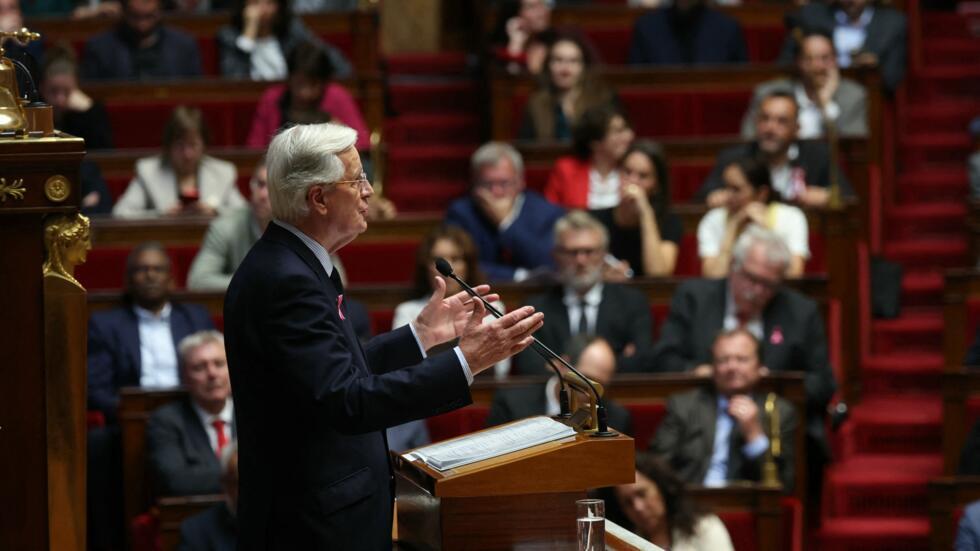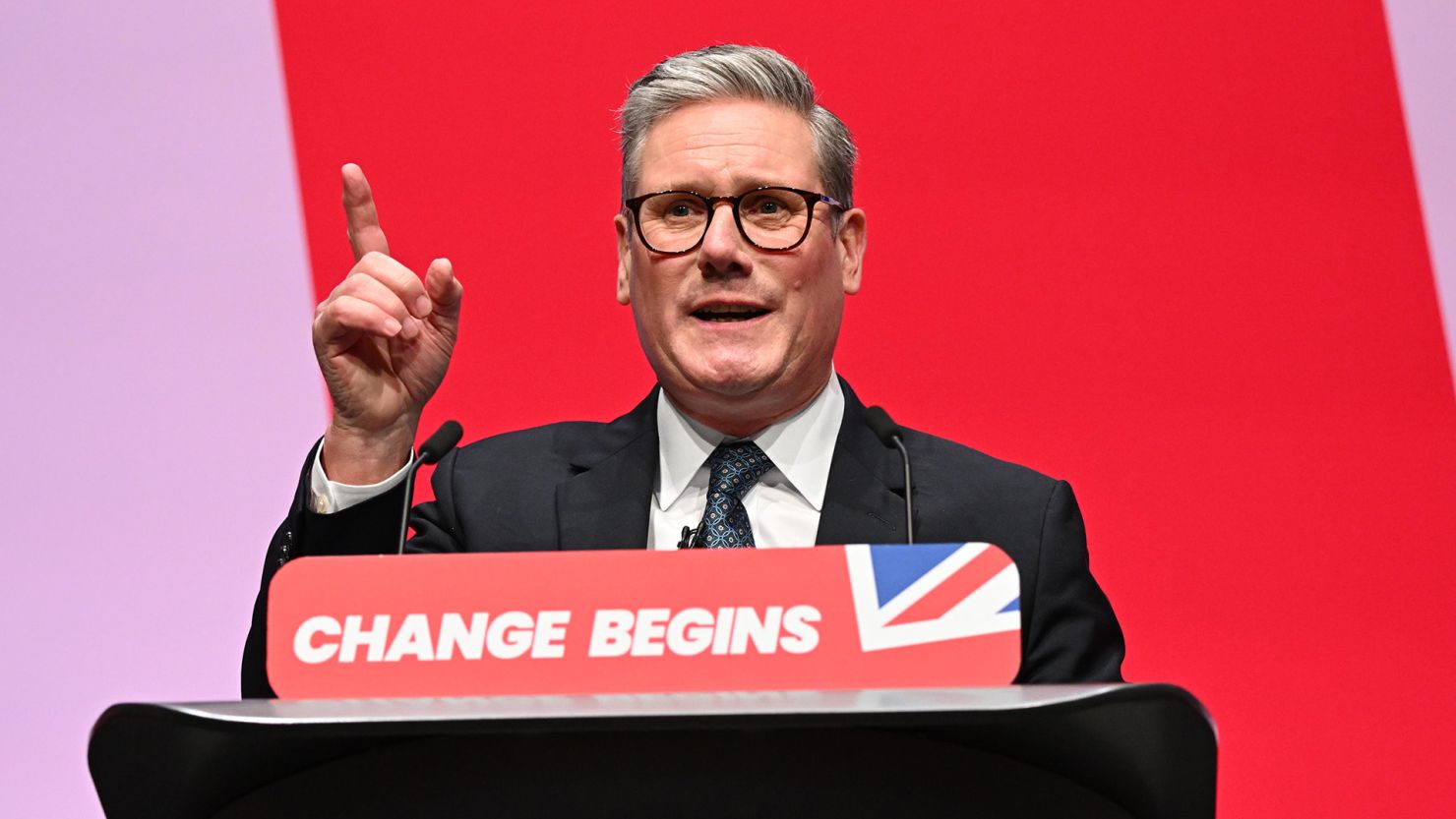What are the priorities of Michel Barnier’s new government?
| Twenty-six days after his appointment, the new Prime Minister Michel Barnier presented his general policy statement on Tuesday 1 October 2024 before ‘a National Assembly more divided than ever since 1958’, in his own words. In a speech lasting over an hour, regularly heckled by members of the opposition, he focused his initiatives on two urgent priorities: tackling budgetary and climate debts. He then described his priorities around five major areas: purchasing power, public services, security, immigration and solidarity. As for the method, he invited French MPs to draw inspiration from the culture of compromise of other European countries. |
- Curbing the “double fiscal and ecological debt”
- Reducing public debt is a crucial priority. Michel Barnier insisted on the need to reduce the budget deficit, currently in excess of 6% of GDP, to 5% by 2025 and further to 3% by 2029. Debt servicing currently represents 51 billion euros, the second largest public expenditure after education. The Prime Minister is proposing two levers for reducing this debt: firstly, a cut in public spending by, for example, ceasing to systematically subsidise any sector. Secondly, tax reform, by calling for a sharing of the national burden, in particular through an exceptional contribution from large corporations and the wealthiest. This reform also includes reinforcing the war on tax and social security fraud, to ensure a collective recovery without undermining competitiveness.
- Ecological debt is the second major emergency. The government is committed to making the green transition one of the driving forces behind France’s industrial policy – through a more circular economy, the decarbonisation of factories and the development of renewable energies (particularly wind power and biomass). He also reaffirms France’s commitment to nuclear power. At the same time, efforts will be devoted to the energy renovation of buildings and the management of water resources. A national conference on water will be organised, marking a historic re-evaluation of water management policies.
2. Improving access to public services
- The government has made improving the quality of public services a key priority, particularly in the areas of education, health and social services. Education emerges as a core priority, with a call for retired teachers to fill the shortfall. The government also intends to improve childcare.
- With regard to health, the Prime Minister plans to address the issue of medical deserts by encouraging resident doctors to work in these areas. Mental health has been declared the national cause of 2025. The use of retired doctors will also be encouraged, with compensation for their pensions.
3. Security and justice
- The new Prime Minister has reiterated his commitment to security, calling for local action plans to reduce crime. This includes efforts to combat drug trafficking and the underground economy more broadly. In the long term, this will require judicial reform to reduce the length of trials, particularly for minors, as well as the construction of new prison infrastructures.
4. Containing immigration
- Michel Barnier stated that he wished to break the ideological deadlock on immigration and adopt a pragmatic approach. This involves targeted measures, such as improving the enforcement of obligations to leave French territory (OQTF), but also European-level measures. The Prime Minister announced that France would be stepping up its border controls, in line with EU legislation and in symbiosis with its German neighbour. Frontex’s mission will also be redefined to safeguard Europe’s borders.
5. Solidarity and fraternity
- The government is committed to strengthening aid for people with disabilities and supporting single-parent families. But these efforts will be pursued in the broader context of a full-scale fight against poverty. Michel Barnier also announced his intent to resume the bill on the termination of life, which had been interrupted by the dissolution of the National Assembly.
6. Red lines and republican values
- The Prime Minister reiterated the importance of Republican values and secularism. He reaffirmed his commitment to combating racism, antisemitism, violence against women and communitarianism. Legislative social achievements such as the Veil law on abortion, same-sex marriage and medically assisted procreation will not be reconsidered.
7. France on the international stage
- Michel Barnier reiterated his continued support for Ukraine in the face of Russian aggression, while calling for an active French presence in the Middle East crises, particularly in Lebanon and Palestine. He notably called for a ceasefire in Gaza and the release of hostages held by Hamas. Michel Barnier also called for greater investment in digital technology, space and defence. Finally, accelerating the energy transition remains a strategic goal for maintaining France’s influence on the international stage.
| The vision that Michel Barnier outlined in his general policy speech does not reflect any major break with the policy pursued by the governments chosen by President Macron since 2017. There are a few inflections: notably on the fiscal front (taxation of large companies and the wealthiest) and on the institutional front (consideration of a change to the electoral law); an openness to partial adjustments to the law on pensions; and a desire to appear firmer on sovereignty issues, a sine qua non for the constructive abstention of the Rassemblement National, now the largest parliamentary group in the National Assembly. Finally, we note his willingness to make a personal commitment to resolving the crisis in New Caledonia. |
Marc Reverdin, Managing Director, mr@reverdin.eu
If you would like to discuss the political situation further and understand what impact it will have on the business climate and macroeconomic framework, as well as on regional and international policy, please do not hesitate to contact us.
We help our clients navigate political and financial dynamics from local to global.





